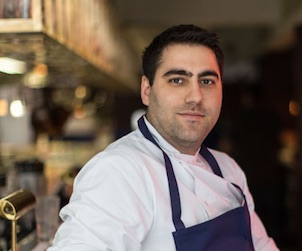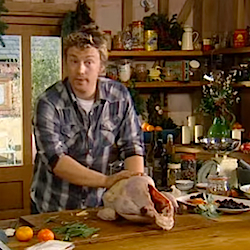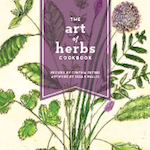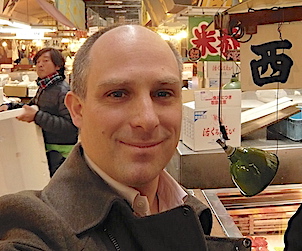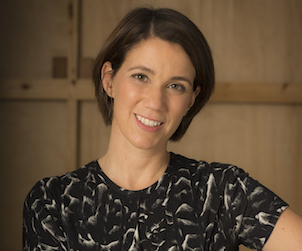Malcolm Jolley talks to London-based Chef Tomer Amedi about the Palomar Cookbook.
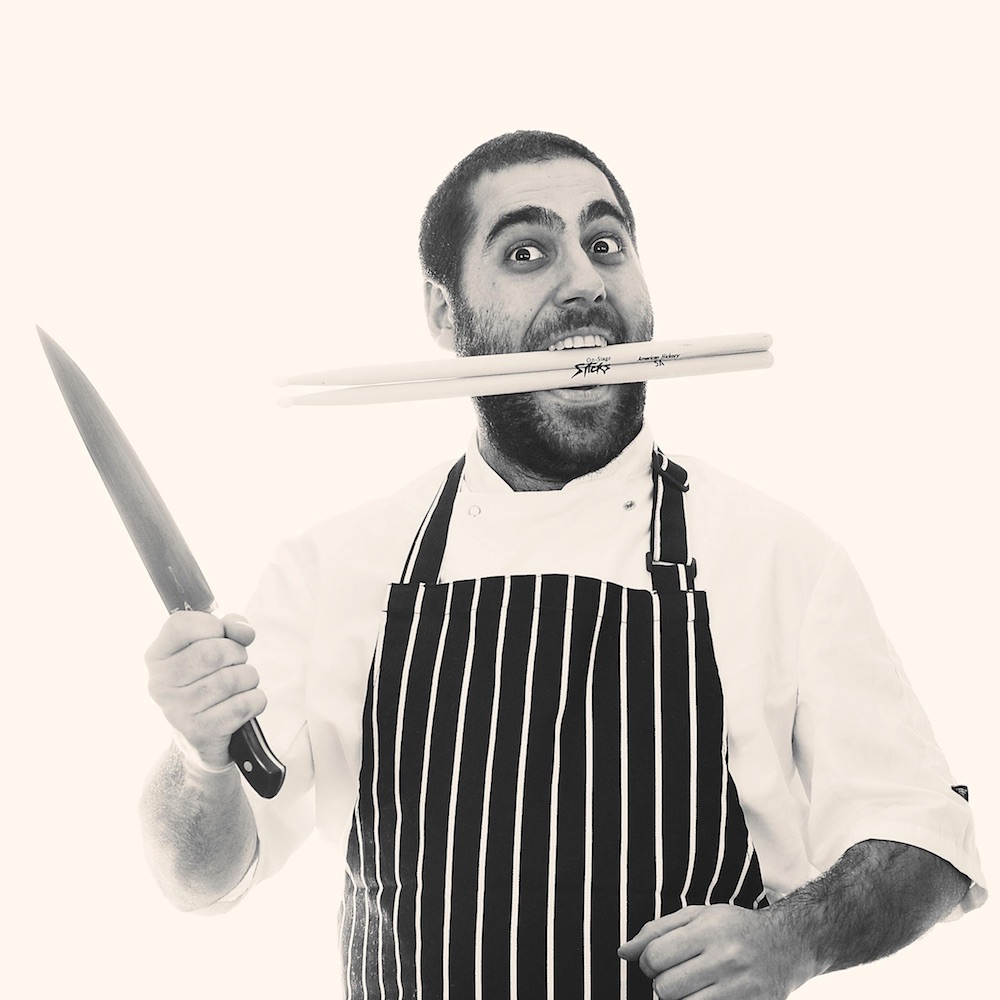
Tomer Amedi, the Executive Chef at The Palomar and co-author of its new cookbook, was a drummer before a chef.
At about 10:30 on a summer’s Monday night the bar starts to hum. The sound system gets turned up asking us Do You Dare To Disco? and we’re distracted from our ‘octo-hummus‘ and ‘decontructed kabob’ long enough to see one of the chefs dancing with one of the servers behind the counter, we raise our glasses of rosé, smile and quickly get back to our food. This is The Palomar in London’s West End, and hard place to get a coveted seat at the bar. We tried the year before, 2015, after the Palomar was named by the Observer Food Monthly as the best new restaurant in the UK. No luck, unless we wanted a 11pm seating. Last year, we managed a 9:45 spot at the bar, which occupied the front part of the narrow storefront and offered a lively view of cooking, drink mixing and wine pouring, as well sporadic boogieing. The bar was the best seats in the house and we ate very well, and had a lot of fun.
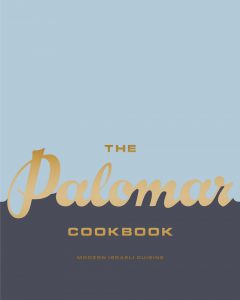 Fast forward to a cold Toronto February and just when winter’s bleakness seemed to getting the upper hand, in through the mail box comes a review copy of The Palomar Cookbook: Modern Israeli Cuisine. In it we find recipes for some of the dieshes we tried last summer, as well home recipes from the Palomar’s founder and ‘Creative Driector’ Layo Paskin and its Head Chef, the Jerusalem born and raised Tomer Amedi. The restaurant’s cookbook is due out in Canada on March 21st., and it’s right on trend – not just because The Palomar is a hot restaurant in a hot restaurant town, but also because the English-speaking world seems to have recently discovered and embraced this ‘modern israeli cuisine.’ A few days later, after trying with success some of the simpler recipes, like chicken thighs in green olive and tomato sauce (a kind of Middle Eastern inspired cacciatore with baharat and ras el hanout spices), I arranged through Penguin Random House Canada to talk to chef Tomer Amedi by telephone for the interview below.
Fast forward to a cold Toronto February and just when winter’s bleakness seemed to getting the upper hand, in through the mail box comes a review copy of The Palomar Cookbook: Modern Israeli Cuisine. In it we find recipes for some of the dieshes we tried last summer, as well home recipes from the Palomar’s founder and ‘Creative Driector’ Layo Paskin and its Head Chef, the Jerusalem born and raised Tomer Amedi. The restaurant’s cookbook is due out in Canada on March 21st., and it’s right on trend – not just because The Palomar is a hot restaurant in a hot restaurant town, but also because the English-speaking world seems to have recently discovered and embraced this ‘modern israeli cuisine.’ A few days later, after trying with success some of the simpler recipes, like chicken thighs in green olive and tomato sauce (a kind of Middle Eastern inspired cacciatore with baharat and ras el hanout spices), I arranged through Penguin Random House Canada to talk to chef Tomer Amedi by telephone for the interview below.
This Interview has been edited for clarity, length and style.
Good Food Revolution: So how did this cookbook come about? I guess if you have a really hot restaurant you get offered a cookbook?
Tomer Amedi: Well, yeah it was something like that. That’s not far from the truth. When we opened we were really hectic in the first year. So, people approached and said, ‘You need to write a cookbook!’ So, we got an agent and she said, ‘You need to write a cookbook!’ So, we said, Alright, let’s write a cookbook.’ We wrote the proposal, sent it to a couple of publishers, had a couple of meetings and we had a really good connection with Octopus and we started to write a cookbook. When you’re in your first year, with all the pressure of opening, writing a cookbook isn’t something you’re thinking about, but we were fortunate that people approached us with the idea, so we did it and it was a really fun process.
GFR: This isn’t just restaurant cookbook, though. There are recipes from your home life to things you came up with just for the book, right?
TA: We wanted to try and express the heritage of where we came from and what we’ve tried to bring with us. We wanted to expose that to anyone who gets into the book, and we hope they enjoy the journey of reading the book and seeing everything we’ve been through: what is this modern Jerusalem food? We want people to read about us, our families and the environment we grew up in: everything that inspired us to create these recipes. I think it’s also important to show not just the basics of the food from where we come from but also how we play with it, what the associations are when we are developing it and taking it to the next step. The food might be forward looking, but it still comes from somewhere. A cured lemon will always be a cured lemon.
GFR: I guess that’s part of the philosophy of The Palomar, too? I mean being forward looking. You famously have pork belly and scallops on the menu. People wonder what kind of Israeli food is this?
TA: Look, none of our restaurants in Jerusalem are kosher. In all of our restaurants we have seafood and bacon. We are just chefs who like to cook food without rules. That’s just our approach. So, maybe we grew up with a fish hraime, but there’s no reason not to throw in a few prawns or scallops, or octopus.
GFR: Like octo-hummus! I really enjoyed that dish.
TA: Exactly. No boundaries.
GFR: Since we’re talking about some of the recipes in The Palomar Cookbook, I need to bring up velvet tomatoes. That’s another dish I remember just being blown away with: the intensity of flavour and the amazing texture. My wife and I fought over every bite.
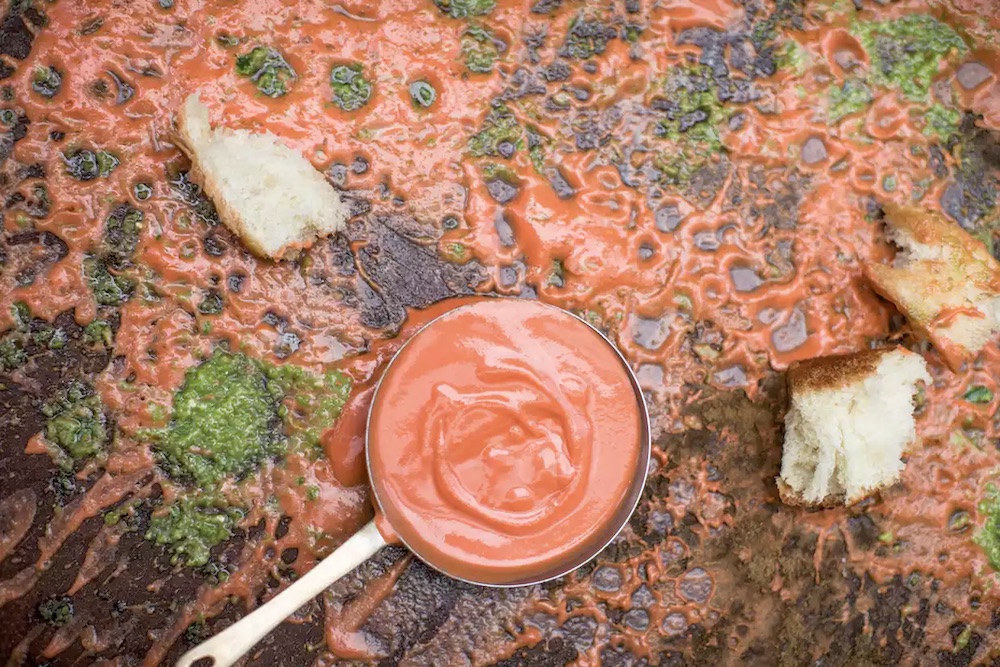
Velvet tomatoes from The Palomar Cookbook. Photo credit: Helen Cathcart.
TA: Velvet tomatoes: that’s a good example. I really love the Catalonian kitchen. They have their gazpachos and pan y tomat. But I also really love Yemeni cuisine with their grated tomato with loads of cumin and garlic. It was invented to create something that is going to be very pleasant when you put it into your mouth, it’s going to feel very smooth and nice but still have the flavour palate of the chillis and cumin. You have to play with it until you get what you want. But it’s all very basic: basic ingredients and processes. There are no molecular techniques in any of these cuisines. The flavours and the textures come from the materials themselves.
GFR: I agree, at least the book seems to be written to be used in regular people’s kitchens.
TA: Yes, but it’s also my philosophy in The Palomar kitchen. I do have some xantham gum and I might use a little bit of soy lecithin when I want to balance things; but I use these things only as tools. They are not in front to lead the kitchen. They just help me to express an idea. But I prefer it when the materials themselves express themselves and they give me what I am looking for. A tomato can be velvety by technique, without any additions. You just have to blitz it really well, then treat it a bit like an aïoli, add a little bit of olive oil and voilà you have a velvety tomato.
GFR: Why is Israeli cuisine so hot? Not just in London, but also in The States and here in Toronto? In the last few years there seems to be a real interest in these combination of flavours.
TA: It’s a cuisine that gives loads of respect to vegetables, and to seasonality. That’s something that a lot of people can connect to and appreciate now. More people are interested in trying to eat and exploring as many vegetables as possible instead of steak, a heavy sauce and a little bit of cauliflower on the side. I think also people are interested in the flavours of the Middle East because they’re very intense; they explode in your mouth. That’s something everybody can relate to. Everybody loves to grab a mouthful of something and go, ‘Mmmmmmm!’ So, you don’t need to have a special palate to enjoy it. Everybody can enjoy modern Israeli food. And it’s all fun to enjoy something that feels a little bit exotic like harrissa. You’ve got a heritage of maybe 2,000 years of cuisine. The Turkish people ground up the semolina to become bulghur. They were making tahini all over the Middle East, and even wine started in Jerusalem! You could compare it, if you like, to Chinese cuisine. They have that 3,000 year tradition that also explodes in your mouth. And it’s very colourful, which is also important because you eat with your eyes.
GFR: Speaking of colourful, the place where you serve you food is a lot of fun. I won’t call The Palomar a night club, because it’s not: it’s a restaurant where you go firstly to eat. But, there is a beat going on in the background. I remember being there around 10 or 10:30 at night and the room just sort of lifted. A good song came on and everyone was tapping their feet and smiling as they were eating and drinking. We were having a really good time and nodding at each other around the room.
TA: I think there’s been a shift from where we were putting the chef on the pedestal to the experience of being in the restaurant. You will remember the polenta a lot better if you had an amazing time eating it. That extra fun vibe of enjoying what you do and passing it along is catchy. You can enjoy really good, well prepared and innovative food but still have a loose environment and still enjoy the music, the drinks and your friends. It’s not an either or thing. I think more restaurants are going in that direction of peeling the layers of being very conforming and very… I don’t know… boring? [Laughs.] Restaurants are made of people. If I am not enjoying what I am doing, if my team is not enjoying what they are doing, what’s the reason for us to wake up every morning and do it? And if we pass it on, you guys, the customers, you will come to eat because we genuinely want to feed you. We are really just a bunch of Jewish mums who want to stuff people with food.
Find out more about The Palomar at thepalomar.co.uk. Follow my adventures in food and wine on Twitter at @malcolmjolley.

